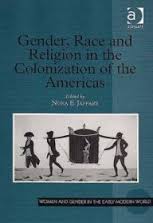Gender, race and religion in the colonization of the Americas
- ISBN: 9780754651895
- Editorial: Ashgate Publishing Limited
- Fecha de la edición: 2007
- Lugar de la edición: Hampshire. Reino Unido
- Colección: Women and Gender in the Early Modern World
- Encuadernación: Cartoné
- Medidas: 24 cm
- Nº Pág.: 205
- Idiomas: Inglés

With outstanding documentation of the importance of local conditions in defining historical outcomes and paying equal attention to North, South, and Central America, Nora Jaffary's compilation is a welcome contribution to the rapidly expanding field of "Trans-Atlantic" studies.Christine Hunefeldt, Professor of History, University of California-San DiegoThe essays in this collection provide a coherent perspective on the comparative history of European colonialism in the Americas through their treatment of four central themes: the gendered implications of life on colonial frontiers; non- European women's relationships to Christian institutions; the implications of race mixing; and social networks established by women of various ethnicities in the colonial context. Geographic regions covered include the Caribbean, Brazil, English America, and New France.When Europe introduced mechanisms to control New World territories, resources and populations, women-whether African, indigenous, mixed race, or European-responded and participated in multiple ways. By adopting a comprehensive view of female agency, the essays in this collection reveal the varied implication of women's experiences in colonialism in North and South America.Although the Spanish American context receives particular attention here, the volume contrasts the context of both colonial Mexico and Peru to every other major geographic region that became a focus of European imperialism in the early modern period: the Caribbean, Brazil, English America, and New France. The chapters provide a coherent perspective on the comparative history of European colonialism in the Americas through their united treatment of four central themes: the gendered implications of life on colonial frontiers; non-European women's relationships to Christian institutions; the implications of race mixing; and social networks established by women of various ethnicities in the colonial context.Contents: Introduction: Contextualizing race, gen
Ed. Nora E. Jaffary






